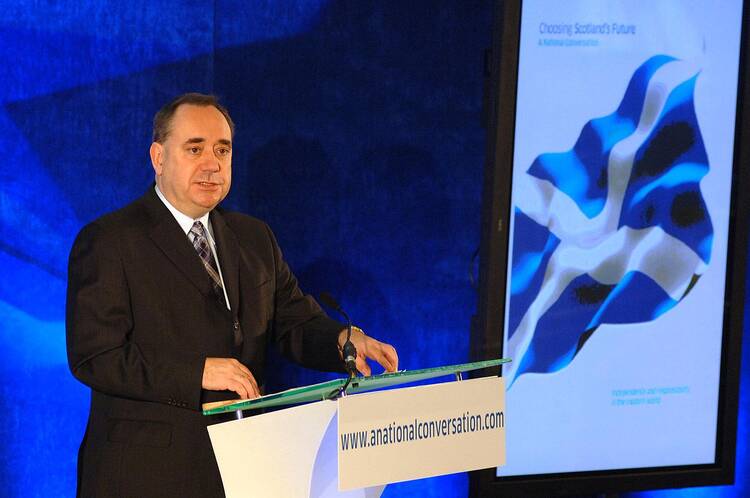Whatever the result of the imminent Scottish independence referendum, now only weeks away, a new and quite remarkable phenomenon is emerging in the country. Here we are seeing a notable surge in grassroots political awareness and debate, a new civic coalition of ideas and discussion, at least on the Yes side of the debate. The leader of the pro-independence Scottish Green Party, Patrick Harvie MSP, says “The exciting bit of this national debate – its beating heart – has been the creative and inclusive movement that has grown up independently of the Scottish National Party [currently majority party in the partially-devolved Edinburgh parliament] not under its control and not bound by its policies”.
Here in Scotland this broad alliance looks less like a campaign and more like a movement. Social media are its life-blood; it is self-funded and self-managed and it eschews the confrontational approach of traditional politics. The anti-independence No campaign appears to rely much more on the mainstream media and traditional campaigning methods.
Yet the final challenge for this broad pro-independence alliance remains how to turn this creative energy into votes; the No side remain in front, if narrowly, while anything up to 20% of the voters remain undecided.
Controversy was in the air again recently, following a televised debate between the First Minister, SNP leader Alex Salmond, and Alistair Darling MP, a Scottish former UK Chancellor of the Exchequer [Finance Minister] for the No campaign. A widely expected Salmond knockout victory didn’t happen. Darling more than held his own with his carefully prepared tactic of challenging Yes’s plans for a post-independence currency. Salmond, refusing to be drawn beyond his insistence that an independent Scotland could continue to use the existing UK Pound even without a formal currency union with London, looked initially weaker than expected, yet post-debate polling among undecided voters suggested a small rise in support for Yes.
Meanwhile, rumors abound of massive new offshore oil finds in Scottish waters to the northwest, with much speculation about the possible benefit to the Scottish economy. As late summer temperatures fall here, the political heat is being turned up to maximum.
See "The Scottish Question" for a round-up of different takes on the independence referendum.








